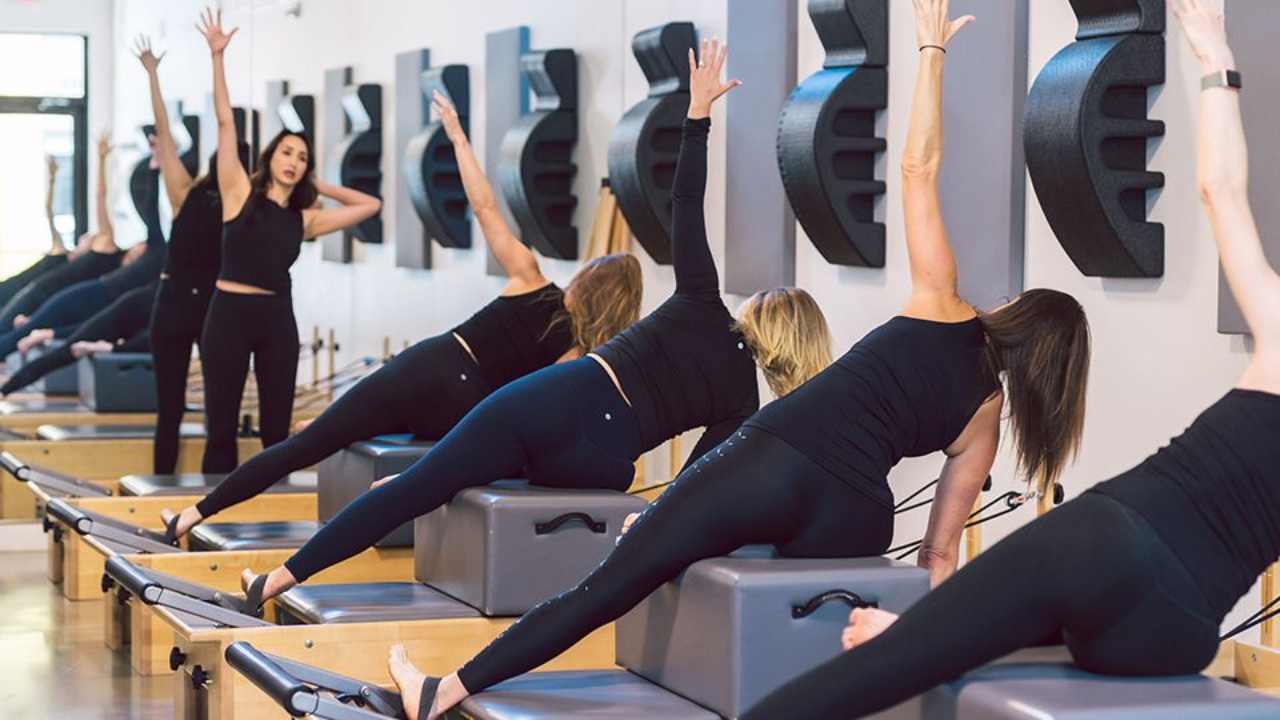How Pilates Can Benefit Your Mental Health
Mar 08, 2024
When it comes to our mental health, research, doctors and experts all point to one simple, accessible intervention: exercise.
Exercise has been proven again and again to be beneficial for mental health by reducing anxiety and depression, releasing feel-good endorphins and boosting self-esteem. When we exercise, our blood flow increases, sending blood and oxygen to the brain. This keeps our minds and nervous system healthy and balanced.
As far as what type of exercise is best, according to research, every type — aerobic, anaerobic, strength training, etc. — can be beneficial, but an exercise like Pilates provides an array of mental health benefits due to its focus on mindful movements and breathing.
How does Pilates benefit mental health?
Practicing Pilates regularly will benefit your mental health in a number of ways, from increasing relaxation to boosting your mood. Below are just a few examples of how Pilates trains not only the body but the mind so that you can grow more emotionally resilient, feel calmer and take steps toward feeling like the best version of yourself.
Mindfulness
Mindfulness is the practice of being present and aware. This practice has been proven to reduce stress, improve mood and help with emotional regulation. Pilates stresses mindful movements. Unlike running or other exercises you can perform on autopilot, Pilates requires focus and attention. Each movement is dependent on your core and proper positioning and alignment, so there is less opportunity for your mind to drift or ruminate. You have to be present in the moment, allowing you to exercise your mind as well as your body, reducing stress and training your brain to be mindful, not only during class but in other areas of your life.
“The deeper we breathe, the better we feel.”
Brooke Bowersock
Balanced Body Pilates Principal Educator
Breathing
As one of the six fundamental Pilates principles, breathing is foundational to Pilates as well as our well-being. As Balanced Body certified Pilates teacher, Anastasiya Goers says, “Our emotions and breathing are closely connected….Learning to control your breathing is probably the biggest benefit of Pilates since many of us are ‘lazy-breathers.'”
Goers cites a study that found we can chance how we feel by changing our breathing. Deep belly breathing, the type we do in Pilates during every class, calms the amygdala and gets us out of fight-or-flight mode, the hormonal response we have to stress. The deeper we breathe, the better we feel.
Endorphins
You’ve probably heard about endorphins — the feel-good hormones released during exercise. Pilates stimulates the production of endorphins in the brain, giving you what is often referred to as “the runner’s high.” Any aerobic, including Pilates, will release endorphins, making you feel good and want to come back for more.
Muscle release
Emotions don’t only affect our brains; they affect our entire bodies. In fact, research shows that we store emotions and trauma in parts of the body. For example, many of us hold difficult feelings and emotions in our hips. When we stretch or massage that area of the body, it helps us release that tension caused by stored emotion.
According to this therapist, in addition to our hips, we may store emotions like anger in our lower back and anxiety in our shoulders. Releasing these areas of the body through exercises like Pilates can help release this stored emotion and stress, allowing us to work through our anxieties.
Sometimes the best thing to do for our mental health is get out of our heads and into our bodies. Doing this several times a week during a Pilates class will help you release all of the built-up tension and emotion that’s taking up residence in your body.
Increased energy
When you’re depressed, anxious or overwhelmed, the first thing to go is your energy. This loss of energy can create a negative mental loop: the worse your mood, the more tired you feel. The more tired you feel the less motivated you are to do the things you know will make you feel better (like exercise).
Pilates is a great way to boost your energy. This study looked at the effect of Pilates on women who were experiencing postpartum fatigue. Postpartum women who did at-home Pilates five times a week for eight weeks had less general, mental and physical fatigue than women who did not do Pilates.
If you’re needing a mental and physical energy boost, Pilates is a perfect option. You may feel tired or resistant to movement for the first five or ten minutes of class, but once you get past that hump, you will feel empowered and energized!
Self-acceptance
Pilates is an exercise for everybody. It is accessible no matter your previous exercise experience or current level of fitness. It works with you where you are, and it grows with you, so you can continue to challenge yourself without feeling like you’re falling short or not as strong as the next person in class.
Goer points out that in a world that constantly makes us feel like we’re not enough, Pilates does the opposite. It accepts you for who you are. This, she says, can do wonders for your self-esteem, helping you accept who and where you are right now rather than feeling like you are constantly falling behind.
There is no doubt that exercise is one of the best antidotes to anxiety and depression. The mindful yet rigorous movements of Pilates, its focus on the breath and its accessibility make it the ideal fitness modality if you need a mental boost or simply want to maintain your mental health as you build physical strength and endurance.
